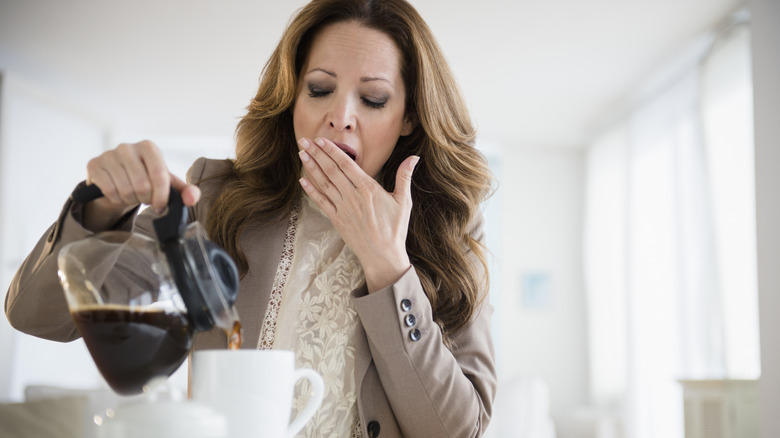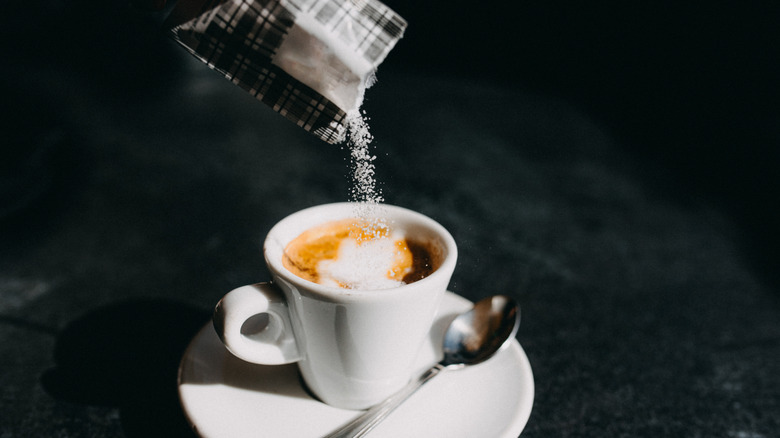The Scientific Reason Coffee Could Make You Sleepy
For some people, it's simply impossible to feel awake and ready to tackle the day without that morning cup (or two, or three) of coffee. But occasionally, coffee — or a can of Coke or other caffeinated drink such as tea or energy drinks — can have the opposite effect and actually make you sleepy. When that happens, you might wonder if you accidentally used decaf or simply didn't drink enough to promote alertness. But there's a scientific reason why coffee could make you sleepy, and it has to do with a chemical in your brain called adenosine.
Adenosine is in charge of your body's sleeping and waking cycle. As you expend energy throughout the day, your brain produces the chemical. It binds to special receptors in the brain, and when enough of it builds up in those receptors, you start to feel sleepy. But your morning coffee contains caffeine, which is a chemical that actually blocks those adenosine receptors. In other words, it interferes with your natural sleep-wake cycle.
When your receptors don't detect adenosine, the caffeine tricks the body into believing it doesn't need rest, so instead, it releases other chemicals that cause you to feel more awake. Caffeine is rapidly absorbed — within 45 minutes of drinking your cup of coffee, 99% of the stimulant is absorbed into your body, which is why you feel alert pretty quickly. In order to continue that feeling of wakefulness, you need to keep consuming caffeine. As tolerance builds, your body simply makes more adenosine to compensate for what was blocked — and this can cause sleepiness.
Tolerance, sugar, dehydration, and more can all affect sleepiness
The fact that you have to continually take in caffeine to block those adenosine receptors means that you can build up a major tolerance to the stuff. That's why medical experts at the USDA recommend that people limit their caffeine consumption to 400 mg per day (about three to five cups of coffee). With more adenosine flooding your system, you're bound to feel sleepy eventually. If that's the case for you, it's a good idea to slowly taper your regular caffeine consumption down to a more reasonable level (rather than stopping cold turkey, which will likely lead to withdrawal symptoms).
If you like to add sugar, flavored syrups, or cocoa to your coffee, you're also increasing your blood sugar levels. As anyone who has ever filled up on Halloween candy knows that a sugar spike and subsequent drop can certainly make you sleepy. There also is a small chance that coffee's natural dehydrating properties — the same effects that make you have to go to the bathroom after drinking it — can cause some sleepiness, though it would probably take quite a lot of coffee to dehydrate you that significantly.
Finally, your timing for drinking coffee, or any drink containing caffeine, could play a role in how sleepy you feel. If you consume it close to bedtime, it can cause insomnia, which then leads to you feeling sluggish the next day, since your sleep-wake cycle is interrupted. Bottom line: If your coffee winds up making you sluggish, it's worth considering how much you drink, when you drink, and what you add to it.

